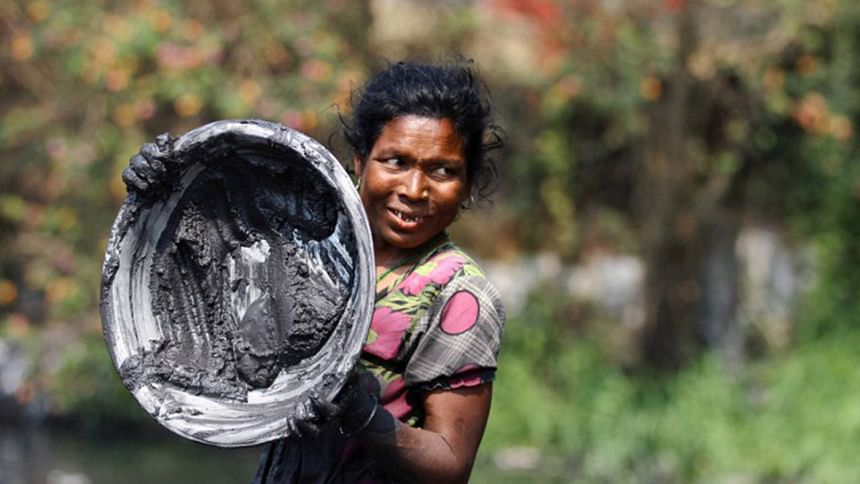India will ‘cut coal for climate cash’

A senior Indian negotiator says his country will cut back its use of coal, if sufficient cash for renewables emerges from a Paris deal.
Dr Ajay Mathur said coal would be restricted if there was help to pay for "more expensive" green energy.
India is expected to become the world's biggest importer of coal by 2020 as it seeks to expand electrification.
Other nations welcomed the statement, saying that it enhanced the chances of a new agreement.
India's national climate plan, submitted ahead of this meeting, suggests a significant role for coal going forward.
According to the document, coal "will continue to dominate power generation in future".
Mine a month
The country is planning on expanding its production of coal to 1.5 billion tonnes of the fuel by 2020. That would require the equivalent of opening one new coal mine every month until the end of this decade.
India's need for coal is driven by the huge numbers who do not have electricity, estimated to be around 300 million people.
In these negotiations the government has adopted a hard line, saying that the need to develop using fossil fuels trumps the needs of the climate.
In recent days, the Indian Environment Minister Prakash Javadekar told BBC News that his country had every right to continue using as much coal as it needed.
"We are increasing our renewable targets tenfold in the next 15 years but we will require coal because it is the need of the hour for my people to grow."
But on Wednesday, Dr Mathur, a senior negotiator in the Indian delegation, adopted a much more conciliatory line.
He argues that the cost of solar, which has declined by 75% in 4 years, is still double the cost of coal.
If cash was provided to make the capital investments in renewables cheaper, India would use more sun and wind, and less coal.
"We look forward to an agreement that enables financial support from the countries that have developed on the backs of cheap energy, to those who have to meet their energy with more expensive but low carbon energy," Dr Mathur said.
When asked if the amount of coal that India consumed would reduce if more money was available from a Paris deal, he replied: "Absolutely.
"We are very clear that solar and wind is our first commitment, hydro and nuclear all of these non-carbon sources are what we will develop to the largest extent we can.
"What cannot be met by these will be met by coal."
The Indian delegation would be pushing for a "just and sustainable agreement" here in Paris, Dr Mathur said.
Development was still the main aim for India. But the country had to find a different way of doing it, even compared to the greenest European countries, he said.
"What I am truly fearful about is say if India moves onto a path of Denmark, and even has two cars for 10 people, we will be swamped. Even the Denmark paradigm does not work for us."
US lead negotiator Todd Stern said the Indian statement was encouraging.
"We support the notion of India greatly increasing [renewables]. Prime Minister Modi has made pledges that are quite enormously impressive actually with respect to the development of renewable energy, the total of what he has pledged is 175 gigawatts in a very short period," he told a news conference.
"We provide assistance to India, we invest in India, many other countries do, we certainly want to work with our Indian partners to encourage and to help, exactly what they are trying to do and do our best to help them realise that."
China has also announced steps to upgrade many power plants in an effort to clean up the air and reduce carbon, according to the official Xinhua news agency, quoting the State Council.
Any coal stations that do not meet the new standard by 2020 will be shut down, the agency reported.
UN climate conference 30 Nov - 11 Dec 2015
COP 21 - the 21st session of the Conference of the Parties - will see more than 190 nations gather in Paris to discuss a possible new global agreement on climate change, aimed at reducing greenhouse gas emissions to avoid the threat of dangerous warming due to human activities.

 For all latest news, follow The Daily Star's Google News channel.
For all latest news, follow The Daily Star's Google News channel. 








Comments